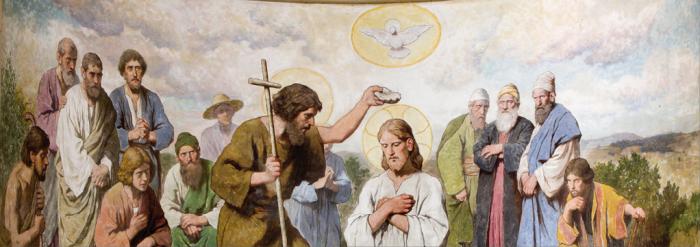
3.27 What kinds of feasts are there throughout the year?
The liturgical year begins with Advent and the Christmas season. Lent is a period of fasting and preparation for the important feast we celebrate at Easter, namely the resurrection of Jesus. Eastertide ends after Ascension, at Pentecost.
In ‘ordinary time’ (the remainder of the liturgical year) we are invited to learn to live more and more like God’s children, after we have celebrated the major feast-days focusing on Jesus. There are also feasts-days honouring Mary, the saints and the angels. On the last Sunday of the liturgical year, we celebrate the feast of Christ the King. God’s rule is based not so much on laws, but rather on love.
What is the liturgical year (the Church year)?
The liturgical year, or the Church year, superimposes the mysteries of the life of Christ—from his Incarnation to his second coming in glory—on the normal course of the year. The liturgical year begins with Advent, the time of waiting for the Lord, and has its first high point in the Christmas season and its second, even greater climax in the celebration of the redemptive suffering, death, and Resurrection of Christ at Easter. The Easter season ends with the feast of Pentecost, the descent of the Holy Spirit on the Church. The liturgical year is repeatedly interrupted by feasts of the Lord, Mary and the saints, in which the Church praises God’s grace, which has led mankind to salvation. [Youcat 186]
After the Easter Season that ended last Sunday with Pentecost, the Liturgy has returned to "Ordinary Time". This does not mean, however, that Christians must be less any committed: indeed, having entered divine life through the sacraments, we are called daily to be open to the action of divine Grace, to progress in love of God and of neighbour. [Pope Benedict, Angelus, 30 May 2010]





